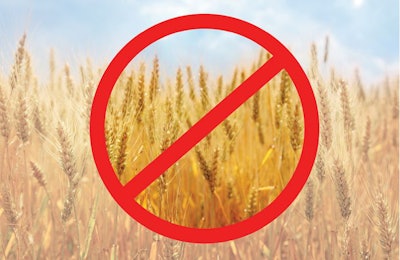
It’s a classic PR tactic: releasing less-than-positive news on a Friday in hopes it will go unnoticed leading into the weekend. In the case of the Food and Drug Administration’s (FDA) announcement that it is ending updates on its dilated cardiomyopathy (DCM)/grain-free pet food investigation “unless there is meaningful new scientific information to share,” the news came out the Friday before Christmas, effectively burying it over the long holiday weekend and season.
So, what began more than four years ago as a major FDA alert is now ending (sort of?) in a rather quiet, inauspicious way. The sad conclusion is that, after multiple FDA reports, countless articles, billions of dollars spent in response and research, or lost in sales, and sky-high levels of confusion and anxiety among everyone—pet owners, veterinarians, retailers, pet food brands—there is really no closure.
Did the FDA investigation ever find anything?
First, the facts from FDA, as reported by my colleague, Tim Wall:
“FDA received far fewer reports of DCM cases from 2020 to 2022 compared to the preceding two years. In total, FDA received 1,382 reports of DCM from Jan. 1, 2014, to Nov. 1, 2022. However, most of those case reports clustered around the dates of FDA announcements about its investigation of correlations among grain-free dog foods and DCM.
“FDA stated it had insufficient data to establish causality among DCM case reports and pet food products eaten by afflicted dogs.”
This is all information that various people and entities within the pet food industry have been pointing out since FDA’s initial announcement in July 2018; yet that bold announcement spread far and wide, setting off a chain of events that is likely still not completely over, despite the December 23, 2022, disclosure of no further updates.
Nearly a year after the initial report, in June 2019, FDA compounded the hype and resulting reactions by naming specific pet food brands most frequently fed to dogs with officially documented cases of DCM. That led to huge sales and reputation hits for those brands, along with the entire grain-free pet food category—never mind that the list included both grain-inclusive and grain-free formulations.
Investigation starts petering out by 2020
In January 2020, during a presentation at the American Feed Industry Association’s Annual Pet Food Conference, David Edwards, Ph.D., an officer with FDA’s Center for Veterinary Medicine’s (CVM) Office of Surveillance and Compliance, signaled what seemed a change in stance on the investigation. He presented an update that really wasn’t one, stating there was no new information to announce, and the agency didn’t foresee any announcements happening in the near future.
At the time, I and others speculated that this was because the investigation was essentially leading nowhere. This theory seemed proven when, in November 2020, FDA issued a rather curious announcement: that the investigation had reached an “inflection point.” But the announcement was NOT an update!
Whatever it was, it came on the heels of a virtual scientific forum held at Kansas State University in September 2020, during which Steven M. Solomon, DVM, MPH, then director of CVM, acknowledged that DCM is a “complex medical condition that may be affected by the interplay of multiple factors such as genetics, underlying medical conditions, and diet.”
Which, again, is what the pet food industry had been saying all along (if diet is even implicated at all).
Does anyone take any measure of satisfaction?
There has been very little communication from FDA about the DCM investigation since. Obviously, during the pandemic, the agency turned its attention elsewhere; but even as we’ve emerged from that, it’s been near silence. Word has it that this latest announcement at the end of 2022 came about only because the agency felt pressure to respond somehow to numerous Freedom of Information Act requests. Otherwise, the lack of communication may have continued.
The inclusion in FDA’s most recent announcement that it had insufficient data to establish causality among DCM case reports and the food the dogs ate may offer some level of relief and satisfaction for members of the pet food industry, yet the entire situation still leaves a bad taste. My thoughts keep turning to the belief that it all seemed an unnecessary waste of time, money, emotion and goodwill.
Of course, FDA could not and should not have ignored DCM cases brought to them by veterinary cardiologists in 2018; where they errored, in my opinion, was in rushing to judgment and action by making a major announcement soon after, rather than first doing some investigation into the possible link to grain-free pet food. That should have included communications with the industry and other experts, in addition to the cardiologists.
For pet owners whose pets have suffered from DCM, whatever the cause, I can’t imagine the most recent announcement has provided a satisfactory outcome. Really, is anyone satisfied or believing this is a completely closed matter?
Yet I do hope researchers outside of FDA are continuing to study DCM and its many causes. Maybe that is one good thing that could come from the whole sordid affair.
















